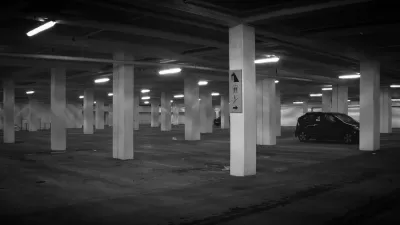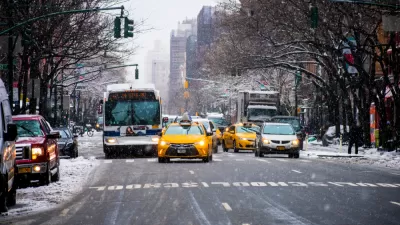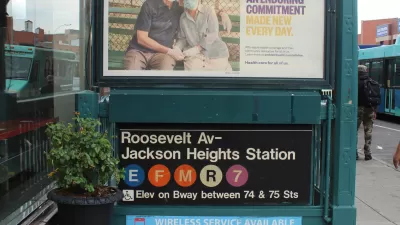The possibility of many more urban dwellers driving than ever before, even in transit-rich locations like New York City, is still very real.

"A Manhattan garage operator is betting that city dwellers in the Covid age are driving more, and would pay a premium for a personal place to put their cars," reports Oshrat Carmiel.
"Centerpark converted an Upper East Side garage into a condominium -- but instead of apartments, it’s selling 23 parking spaces, and hired a luxury real estate broker to market them for sale to the public for as much as $350,000 each."
Kirsten Jordan, the Douglas Elliman Real Estate broker who’s marketing the units, is quoted in the article saying the new, Covid-era twist on adaptive reuse is designed specifically in response to anticipating the needs of New Yorkers with no plans to return to the subway.
The data would seem to support that assumption, according to Carmiel, even after so many months of pandemic living. "As of mid-July, weekday subway ridership had plummeted 54% from the pre-Covid days, according to the Partnership for New York City. The number of city-bound travelers on the suburban commuter rails was down more than half."
The increased demand for parking in New York City has also been evident in the political controversies regarding outdoor dining and bus-only lanes around the city.
FULL STORY: Manhattan’s Newest Covid-Age Real Estate Bet: Condos for Cars

Planetizen Federal Action Tracker
A weekly monitor of how Trump’s orders and actions are impacting planners and planning in America.

Congressman Proposes Bill to Rename DC Metro “Trump Train”
The Make Autorail Great Again Act would withhold federal funding to the system until the Washington Metropolitan Area Transit Authority (WMATA), rebrands as the Washington Metropolitan Authority for Greater Access (WMAGA).

The Simple Legislative Tool Transforming Vacant Downtowns
In California, Michigan and Georgia, an easy win is bringing dollars — and delight — back to city centers.

The States Losing Rural Delivery Rooms at an Alarming Pace
In some states, as few as 9% of rural hospitals still deliver babies. As a result, rising pre-term births, no adequate pre-term care and "harrowing" close calls are a growing reality.

The Small South Asian Republic Going all in on EVs
Thanks to one simple policy change less than five years ago, 65% of new cars in this Himalayan country are now electric.

DC Backpedals on Bike Lane Protection, Swaps Barriers for Paint
Citing aesthetic concerns, the city is removing the concrete barriers and flexposts that once separated Arizona Avenue cyclists from motor vehicles.
Urban Design for Planners 1: Software Tools
This six-course series explores essential urban design concepts using open source software and equips planners with the tools they need to participate fully in the urban design process.
Planning for Universal Design
Learn the tools for implementing Universal Design in planning regulations.
Smith Gee Studio
City of Charlotte
City of Camden Redevelopment Agency
City of Astoria
Transportation Research & Education Center (TREC) at Portland State University
US High Speed Rail Association
City of Camden Redevelopment Agency
Municipality of Princeton (NJ)





























